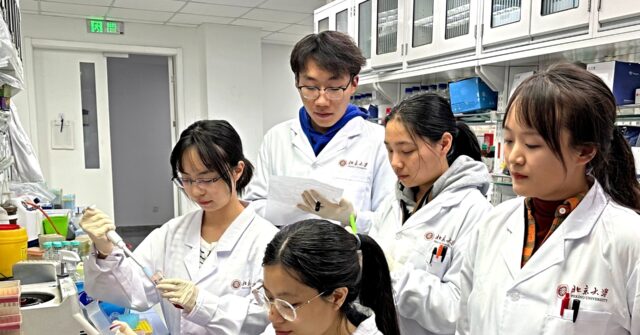Reports this week found Chinese scientists complaining the tariff war is slowing down research and making it difficult for laboratories to obtain vital equipment and supplies from the United States.
Everything from glassware to stem cells has become far more expensive as tariffs soar over 100 percent.
Science noted on Wednesday that American laboratories have been affected as well, since they purchase many of their lab essentials from Chinese manufacturers, but the Chinese side seems to be suffering more, as researchers struggle to afford high-end equipment and services from the United States. Some of these items cannot be produced within China, at least not at the same level of quality.
For example, the premier supplier of gene sequencing equipment is an American company called Ilumina, which China blacklisted in early February. By March, imports of Ilumina products to China were completely banned.
RELATED — Trump: Our Tariffs Have Put America in the Driver’s Seat
Chinese labs are also suffering from a lack of antibodies, computer chips, and advanced equipment like electron microscopes. China does produce electron microscopes, but they are not as powerful as American-made equipment, so Chinese scientists have begun drawing up waiting lists for time on the American microscopes they still have access to.
China’s difficulties have been somewhat mitigated by the decision to build up stockpiles of imported gear and supplies during the Wuhan coronavirus pandemic, which also prompted initiatives to develop local manufacturers of some imported items. Chinese researchers told Science they expected the tariff war to renew efforts to establish local supplies.
On Friday, China began quietly rolling back its retaliatory 125 percent tariffs against certain U.S. goods, with an eye toward reducing the cost of essential imports that cannot be sourced elsewhere. Many of the potential exemptions on a list posted to Chinese social media are scientific and pharmaceutical supplies.
The South China Morning Post (SCMP) quoted analysts who said U.S. research labs have their own trade-war challenges, including the difficulty of finding alternative sources for imported goods from China because President Donald Trump has applied high tariffs against most of the world. This handicap could be alleviated if Trump begins striking trade deals with countries that produce scientific supplies.
Read the full article here


